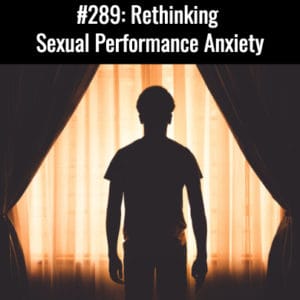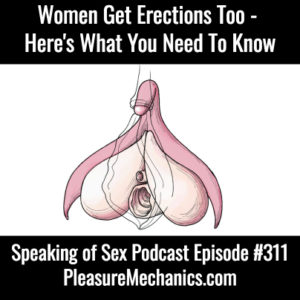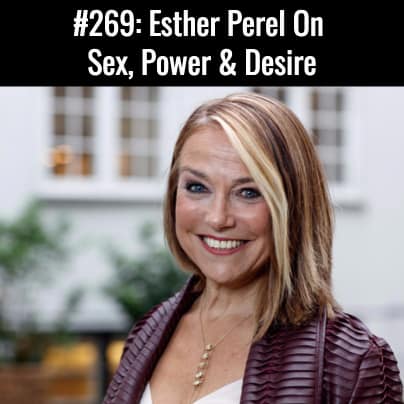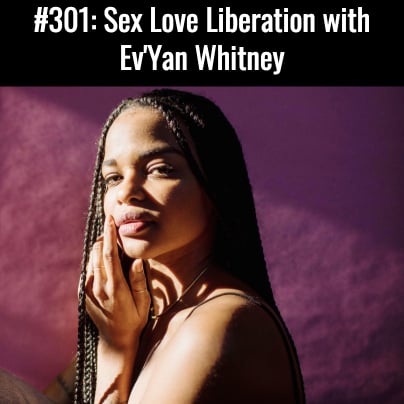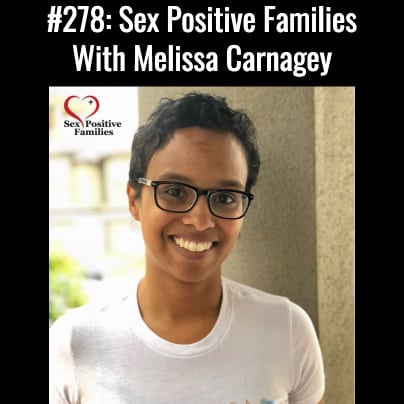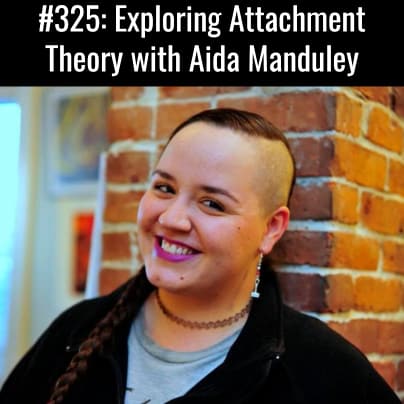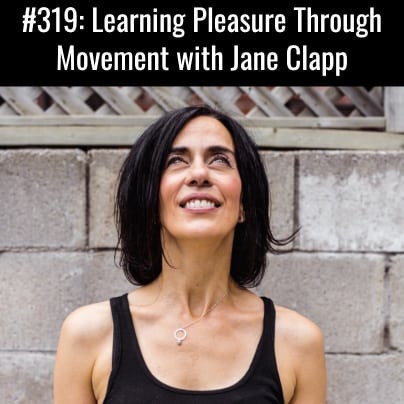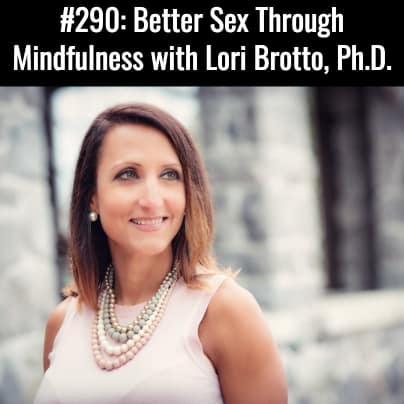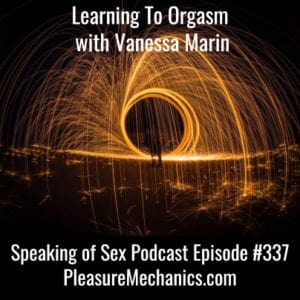Podcast: Play in new window | Download
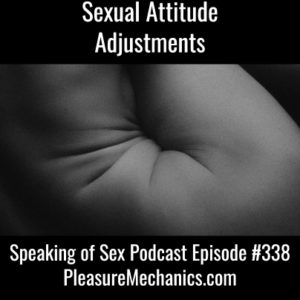
What attitudes do you bring to your sex life? What are your attitudes about gender roles, power dynamics, desire, body parts, hygiene, physical acts, desire, love, pleasure and all of the other factors that influence your sexuality?
All of us need some serious attitude adjustments when it comes to sexuality- to move away from the attitudes that create struggle and suffering and towards new attitudes that allow a more sane relationship to the force of sexuality in our lives.
If you want resources and support around building a new relationship with your sexuality, join us in the Mindful Sex Online Course. Discover how to slay distractions so you can pay attention to all of the pleasure available to you.
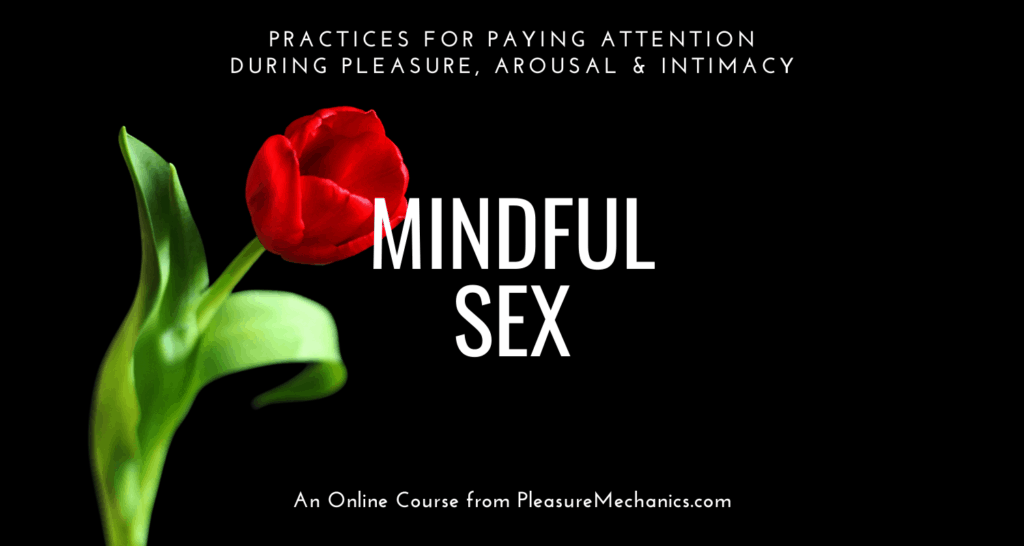
Transcript of Podcast Episode: Sexual Attitude Adjustments
Chris Rose: 00:00 Welcome to Speaking of Sex with the Pleasure Mechanics. I’m Chris.
Charlotte Rose: 00:04 I’m Charlotte.
Chris Rose: 00:05 We are the Pleasure Mechanics and on this podcast we bring you soulful and explicit conversations about every facet of human sexuality. Come on over to pleasuremechanics.com where you will find all of our online resources including our complete podcast archive, our online courses and our free offering to you the Erotic Essentials, our free online course you can get started with tonight at pleasuremechanics.com/free. If you love this show and want to support the work we do, remember that we are 100% supported by our listeners and community. We are a sponsor free show, which means we rely on you to show us the love at pleasuremechanics.com/love. That’s pleasuremechanics.com/love where you will find ways to show your support for this show.
Chris Rose: 01:04 On today’s episode, we are wrapping up Mindful Sex May, our little miniseries where we explored some of the themes and applications of this framework we call mindful sex, bringing the skills of mindfulness into the tricky terrain of our erotic experience.
Chris Rose: 01:25 And on this episode we want to talk about the attitudes we bring to sex. Attitudes are so important for our human experience, but they often go unexamined. And in the classic mindfulness literature, Jon Kabat-Zinn talks about the attitudes of mindfulness being the soil in which your meditation grows. It’s the conditions and the environment for our experiences. It turns out our attitudes are so much about what we bring to life that then drives our behaviors and our experiences. Attitudes are so important, but when it comes to sexuality, so few of us have ever had the opportunity to really examine the attitudes that are driving our sexual behaviors and experiences. So we want to take this time to talk about attitudes, where our attitudes come from, how we can change our attitudes if we want to and as we go into this territory, I really just want to say we are doing this as your friends at the table with you.
Chris Rose: 02:37 As we talk about kind of the more value based things or even some would say spiritual elements of sexuality. It’s very important for me to stay practical and recognize that we are all in this conversation together. We’ve been studying sex for a lot of years. We are dedicating our lives to this conversation, but you are the expert on you, your attitudes are your own and we’re not going to tell you how to think or feel. We’re just going to open up a conversation and ask a whole lot of questions.
Charlotte Rose: 03:13 And then leave it to you to decide what is best for you and what you choose to shift and change or what you notice. It is just so exciting to have the potential to shift our experiences, our sexual experiences by exploring this terrain and that’s why we’re having this conversation. The potential of being able to shift our sexual experiences by just taking a little bit of time and exploring and examining this for ourselves and seeing if there’s anything we want to shift can be so powerful and effective and efficient because we’re interested in you having an amazing time in bed and we hope this little conversation will be able to open something up for you.
Chris Rose: 03:55 We’re interested in you having an amazing time in bed, but also having an amazing relationship with your sexuality as you walk around in the world. And throughout this conversation, as we talk about sexual attitudes, we’re going to be talking both about what we bring to the sex act and our attitudes about the nitty gritty of sex, body fluids, sex acts, but also about sexuality, about gender roles, about desire, about power dynamics. And so let’s start with a conversation. What is an attitude in the first place? What do we mean when we say attitude. As I like to do, I started at the dictionary, and the dictionary reminds us that an attitude is a settled way of feeling or thinking that drives your behavior. A settled way. When we look at that, we think about the fact that attitudes are perspectives and beliefs about the world that we take for granted.
Chris Rose: 04:59 They’re kind of installed beliefs that we are no longer questioning and attitudes are influenced by both our temperament, which we can’t change. Kind of who you are, your personality, your basic makeup. But attitudes are also largely driven by values, beliefs and experiences. Values, beliefs, experiences and information. Right? Our perceived information. And so let’s take an example that doesn’t have anything to do with sex and look at attitudes. Where they come from, how they influence our experience. What is your attitude towards the beach? Charlotte. The beach.
Charlotte Rose: 05:41 Mine is a deep love and so much … I’ve had so many delicious times at the beach, so much family time over the history of my life. Joyful times of connections. So much play.
Chris Rose: 05:53 So you want to go to the beach?
Charlotte Rose: 05:55 I love the beach. I long for the beach. I crave the beach.
Chris Rose: 05:58 Okay. Ask me how I feel about the beach.
Charlotte Rose: 06:01 How do you feel about the beach?
Chris Rose: 06:02 I like the beach, but I also struggle on the beach. I don’t really love being hot. I get really overheated in the sun. I don’t love swimming as much as you do, so I like the beach, but I don’t really want to spend a week at the beach. Someone else might hate the beach. I hate it. I hate being in the sun. I hate the sand. I don’t like swimming. Why would I ever go to the beach? That’s a different attitude. Someone else might be afraid of the beach because all they know of the beach is-
Charlotte Rose: 06:31 Jaws.
Chris Rose: 06:32 Jaws.
Charlotte Rose: 06:33 Do you know how many people I’ve talked to that have seen that film and are terrified to be in deep water because of what they saw in that film and how it affected their psychology and experience?
Chris Rose: 06:46 Right. Okay, so this is a perfect example because some of this is temperament. Some of this is you like being hot more than I like being hot. Cool. [inaudible 00:06:56]. Great. Some of this is experience. You had great family times at the beaches, full of fun and laughter. My family fought at the beach. My family got in violent fights at the beach. Okay, so we have our childhood experience, our learned experience, our associations. What emotional associations do we have with this environment with those sensory cues. And then some of it is misinformation. If I step foot in the water, a shark is going to bite my foot off. You might believe that with such conviction, you’re not even going to look at the ocean, let alone ever put your toe in.
Charlotte Rose: 07:35 Or even if you know that’s not true, you still feel it to be true and still feel terrified,
Chris Rose: 07:40 Right. You might feel terrified and from that terror you could either choose to say, I don’t have any need to go to the beach, or you might choose to learn about the ocean. Visit the ocean. Have a friend hold your hand while you step your toe in. Watch the other people swimming. Gather some more information that gives you new evidence and that might help you start shifting your attitude towards the beach, towards the ocean, to the point where you might discover you love to swim and overcoming this fear was the best thing you ever did for yourself.
Chris Rose: 08:16 Okay, so as we have this conversation, think about how you feel about the beach, dear listener, and what factors might influence your set of attitudes towards the beach. And even when we say the beach walking by the beach is different than sitting in the sand. And that’s different than swimming in the ocean. That’s different than surfing. That’s different than scuba diving. So as we approach this and recognize that with all of these different things, our attitudes drive our relationship, our experience, our behaviors.
Chris Rose: 08:50 You don’t become a surfer if you’re afraid of the water. All right, let’s bring this into the sexual realm. What are your attitudes about sex? That’s a huge question, but we can start there. What are your like meta level attitudes towards sex?
Charlotte Rose: 09:09 And then how do you feel about your body, your genitals, fluids, receiving oral sex, giving oral sex?
Chris Rose: 09:20 What are your attitudes towards kink and fetishes? What are your attitudes towards gay people? What are your attitudes towards loyalty and fidelity and monogamy? What are your attitudes towards how frequently sex should happen in a relationship and sex out of obligation?
Charlotte Rose: 09:41 What are your attitudes about initiating sex and whether that should or should not come from a woman or a man or …
Chris Rose: 09:49 And you’ve cracked the gender thing. So what are your attitudes about what a man should be and what a woman should be in bed? What are your attitudes about what is natural when it comes to sex? All of these questions, each one of them can open a whole universe of attitudes. And let’s zoom in for a moment and make this really practical and notice again how our attitudes about any one of these facets about sexuality might drive our behaviors might drive our experiences and may influence our struggles. Because that’s a piece of this too, is I get all of these e-mails from you guys articulating your sexual struggles and you go right to the behaviors, to the lived experience. And that makes total sense.
Chris Rose: 10:36 When I initiate sex and my wife rolls over without a word, I feel heartbroken. That’s the experience of initiation and rejection. And sometimes we need to swim upstream a bit and go to the behaviors. How did you initiate sex? Sometimes we need to go upstream even more and look at the attitudes. What are your attitudes about initiation? What are your attitudes about frequency of sex and what is your wife’s attitudes and how are they interacting? When we look at these struggles, we notice that so many of them are driven by attitudes, and then we start looking at our sexual attitudes collectively and we realize that our culture has a really bad attitude when it comes to sex.
Chris Rose: 11:23 So we’ll zoom out in a second, but I want to do a specific example. Let’s think about oral sex because it’s a charged one for a lot of people. What is your attitude about giving oral sex? What is your attitude about receiving oral sex? Are they different? Are they the same?
Chris Rose: 11:43 When you think about your attitude, is it influenced by factors like, what is your attitude about genitals? Right? So we zoom out. Do you think are beautiful and precious and this amazing holy part of the body that deserve to be worshiped? Or do you think genitals are kind of gross, stinky, smelly, and really don’t really want to be looked at and they should just be wiped clean and left in the dark?
Chris Rose: 12:10 Are you somewhere in between or do you actually kind of feel both of those ways? A lot of times in our sexual culture we’re confronted with this paradox of feeling two very different ways about the same thing and we’ll talk a little bit more about where that comes from. What are your attitudes about sexual fluids? We did a episode a really long time ago about oral sex and we were talking about how facials are seen as degrading because semen is seen as gross. And so to put semen on someone’s face is an insult, a degrading insult. How dare you. You would only do that to a woman you disrespect. An attitude about semen drives that conversation. And we kind of said in the podcast, we believe semen is holy and sacred. It’s a fluid that comes from our body. It creates life. It is an expression of pleasure and joy.
Chris Rose: 13:13 And if you love the person who semen is going on your face, maybe it can be seen as an act of honoring and celebration and it could be really hot for people. Have we considered that option?
Charlotte Rose: 13:25 But that would only be the case if both people were holding it in that way. If one person is holding it in one way and the other one is seeing it as a hot act of degradation, then that’s …
Chris Rose: 13:37 You’ll have a different experience in that moment. And couples get in fights because of this, and this is what we want to show is that your attitudes will drive your behaviors and when you have attitudes that are implicit, meaning unspoken, unnamed, unseen, that can be really dangerous because your husband thinks you’re having a great time, you’re having fun, you’re getting the best blowjob of your life.
Chris Rose: 14:01 He’s really into it. He ejaculates. It lands on your cheek and you feel degraded, debased. Like you’re bringing all of your attitudes towards that moment and he’s bringing his attitudes of like, this is fun. This is hot. Oh, like I’m going to blow my load. This is going to be great. She’s going to love it. I get the porn star moment. And that disconnect in that moment of your attitudes and all of the unspoken values is what causes that fight, that struggle, and that e-mail to Pleasure Mechanics, right? So what do we do with this? So have we talked about oral sex enough? So we talked about how do you feel about the genitals? How do you feel about the fluids? How do you … what is your attitude about giving and receiving? If you have the attitude that other people’s pleasure comes first, I should be serving others, there’s far too many things to do to focus on my own pleasure; lying back, spreading your legs and relaxing for 15 minutes while someone licks your clitoris might be really challenging.
Chris Rose: 15:02 If you have the attitude of like, I deserve pleasure, it’s good for me, I’m going to feel better afterwards. This is going to help me sleep better. I’m going to feel great tomorrow. My husband loves it. Look how fun this is. That’s a different attitude when you spread your legs, right? So our attitudes about things like giving and receiving, that is an attitude that affects our entire life. How we feel at the holidays. How we feel on our birthday. How we feel at the PTA meetings, at our jobs. What are you worthy of giving and receiving and like that conversation can be a life changer.
Charlotte Rose: 15:42 I just want to name again that they are invisible. And so to make this visible and to have conversations and really think about it, is really powerful because I think we don’t even know how much our own attitudes influence and drive so much of our life.
Chris Rose: 16:00 Well, I’m getting specific. Because if it’s hard for you to receive oral sex, is it because you fundamentally aren’t feeling worthy of receiving that time and attention? Or is it because you think your vulva is disgusting? Or is it because you’re worried you’re going to ejaculate on your husband’s face? Like what is the why? What is the driving attitude behind the behavior of saying no to oral sex?
Charlotte Rose: 16:24 Because for you at the beach, if you bring a structure to keep you cooler, like we got ourselves a fancy tent and you can sit under the tent, you enjoy it so much more. And if somebody can know that they would just like to take a shower before receiving oral sex and then they can really relax into it because their concern about hygiene is dissolved so they can be present for it. That is a really great piece of information. Like we can make adjustments to our behavior once we look at and understand our experience.
Chris Rose: 16:57 Totally. And I used to have the story that I hated playing in the sand and once we got that sunshade I realized I like playing in the sand. I don’t like the hot sand but cool me down, bring me a bucket of water and I will play all day. So what are the attitudes that are driving the behaviors that are creating both your peak sexual experiences and your sexual struggles? And let’s look at these attitudes and behaviors both through an individual lens, like your temperament, your lived experiences, your accumulated experiences that have reinforced your attitudes over and over again. But let’s also look at it through a cultural lens because when we talk about the meta level attitudes that drive our experience of sexuality, we need to look culturally at our attitudes about sex and how sex is presented to us.
Chris Rose: 17:57 And the fundamental way sex has been presented to us for the past few thousand years in Western culture, at least, is sex as sin. Sex as danger. Sex as the road to ruin. But also within the bounds of marriage. It can be the most sacred, holy, precious thing that should be guarded at all costs. So again, that built-in paradox of sex as sin and danger, but also something holy and precious that needs to be protected.
Chris Rose: 18:32 We have a schism built into our attitudes about sex. And so how does that drive your attitude as a woman of like, do you want sex or do you not want sex? What makes you a good girl? Is it good to want sex or is it good to not want sex? Can you want sex but not too much sex? Is it about the kind of sex you want? If you want a certain kind of sex, what does that mean about you as a person? We have all of these moral crises built into our attitudes about sex primarily because of these cultural attitudes about sex and because of the misinformation. The lack of clear information about sexuality can drive these negative attitudes and this fear.
Chris Rose: 19:18 If the only movies you saw about the beach showed sharks, jellyfish, pollution, sand bugs, storms, and tsunamis, beach real estate wouldn’t be worth much and this is how it is with sexuality. The myths of gender roles, the myths of things like virginity. Virginity is a myth. It’s a culturally constructed myth. How much struggle has been created by the attitudes around your first time? Was it good enough? What did your … Instead of thinking about a sexual debut season where you have a coming of age and you have many sexual experiences that define your sexual debut. That’s a totally different attitude towards sexual coming of age.
Charlotte Rose: 20:15 And in films we have seen so little depictions of female pleasure, it’s as if our culture doesn’t value it.
Chris Rose: 20:23 I called you in the other day because I was watching Netflix and there was a hot scene of like a woman getting oral sex and having pleasure and I was like come see this. It’s amazing. Right? And it wasn’t even that amazing of a scene, but just to see two characters in a show having oral sex where her pleasure is centered, was mind blowing. And it makes you realize what you see a lot of. So what attitudes are reinforced by our sexual narratives? Men want sex all the time. Women aren’t really that into sex. Men are the ones that initiate sex.
Chris Rose: 20:56 Sex means intercourse with a male ejaculation finishing it. We have built so much mythology around misinformation.
Charlotte Rose: 21:06 That we think it’s true.
Chris Rose: 21:08 Right. And so much of this podcast is breaking down these myths. Revealing deeper truths. But here’s the thing about attitudes. It’s very hard to change someone else’s attitude. It’s easier to change your own. And so by listening to this podcast, you are already in the process of debunking myths, gathering new information, being in the conversation, being an inquiry about your sex life. And I bow to you, I congratulate you because most people, it’s too scary to ever even start thinking about their sex life. And so they just struggle in silence.
Chris Rose: 21:46 That’s kind of the default mode is I am broken. I am too harmed to ever enjoy this again. I’ll do the best I can. I’ll struggle in silence. So by listening to this podcast, by being part of this community, you are taking a step to change sex culture and to change your own sexual attitudes. And I’d love to hear from you. If you have stories about how something you heard on this podcast or something this podcast inspired you to do, then changed your attitudes about sex and created watershed change in your life, I would love to hear some of those stories and I do hear some of those stories. I love those aha moment testimonials. So keep them coming. chris@pleasuremechanics.com. You can always reach us. Or charlotte@pleasuremechanics.com, if you want to reach her directly.
Chris Rose: 22:37 So knowing that it’s so much easier to change your own attitudes then someone else’s. As you look through your sexual attitudes and notice how many of your attitudes are based in misinformation, in myths, in cultural values that may not be your own, those are the attitudes you might want to recalibrate and you might discover you have attitudes when it comes to sex that are firmly based in your own values that feel supportive and you’re like, yeah, I like that attitude. That’s a good attitude about sex and it brings me the behaviors and experiences I want.
Chris Rose: 23:17 There are attitudes you might want to recalibrate. So how do we do that? The biggest piece I think is naming them out loud and recognizing where this was acquired from. Where did you learn this attitude? And the more specific you can be, the better. Because sometimes you learned it in a very specific moment and that moment was so installed in your neurology that it became part of your operating system in an invisible way. It’s like you got software installed. It’s like a virus. Really. It’s like software installed that then is operating in the background and you don’t even know it’s running. So a dialogue about your boobs being ugly. You might have acquired that in a very specific moment of cruelty in your teenage years where someone was trying to hurt you and it hurt you so deeply. You’ve spent your life covering up your breasts and thinking that they were not worthy of anyone’s attention, let alone your own pleasure.
Chris Rose: 24:22 Is that how you really feel about your boobs? Like is that attitude accurate? Is that based in the values of how you feel about your body? We can look at these things. We can ask these hard questions and then be like, fuck that. No. And as queer people, we’ve had to do this. This is part of coming out as queer forces you to articulate parts of your identity and parts of your life that for other people are implicit. The assumptions about your sexuality no longer apply. So you have to do some work to articulate it for yourself. And we can all do this work and this would make a great bridge into June, which is pride month, and it’s the 50th anniversary of the Stonewall riots that really set into motion the modern Gay Liberation Movement and what The Gay Liberation Movement has brought all of us is a vast freedom of expression.
Chris Rose: 25:17 There’s more opportunity now than ever to be who you want to be and to express your sexuality authentically. And the more of us that do that, the more we can revel in the beautiful diversity and fascinating strangeness of human sexuality. I’m on a tangent. Oh, so are these attitudes yours? Let’s start by asking that. Do you believe this? Is it true? Is it in alignment with the rest of your values? If not, let’s recalibrate.
Charlotte Rose: 25:51 Right. Do you want to choose the ones that you already have? Knowing they may be from your family. From culture. From myth and misinformation. Do you choose them? Or do you want to shift them and potentially shift the trajectory of your life? Because that’s what’s at stake or that’s what’s possible.
Chris Rose: 26:12 So how do you shift an attitude? Part of it is naming it, being very specific about it and then gathering alternative evidence and experiences. So some of this is gathering new data, right? Like learning the facts about your sexuality can be incredibly liberating. The fact that there is no hymen to break changes what we think about virginity. The fact that the male libido is no higher than the … The fact that men aren’t more interested in sex as a default is really interesting for people to know and might be really, really important for your attitudes about sex and how you feel about your attitudes, right?
Chris Rose: 27:06 Because there’s the attitudes and then there’s our judgment of our attitudes. So gathering new information, gathering more accurate information and gathering social proof. So for me, at some point I recognized that I had a lot of internalized fat phobia. I was already standing naked in front of groups of people. I was already going to sex parties. I was already being loved in my body. It was like that jaws moment where I was like, I know that my body is okay. I know that I’m beautiful, I know I’m worthy of pleasure, I know my body’s capable of pleasure and yet still I have this attitude. It’s still there. I still feel it flaring. I still feel it causing me discomfort. And so one of the things I did is I chose to look at a lot of fat bodies. I filled my social feed with fat bodies. I did a lot of reading about fat liberation, where fat phobia comes from and I got social proof. I looked at other people’s fat bodies and thought you are beautiful. And by looking to someone else I could then feel it more accurately for myself.
Chris Rose: 28:18 So gaining experiences and new knowledge and then installing them as your new truth. And that takes time. Like we have to reinforce, right? We have lots of experiences that reinforce our attitudes and it’s really easy to say like, I knew it would be this way. I knew this would happen. The experiences that interrupt your attitudes can be harder to pay attention to, because they feel like an anomaly. But if that anomaly keeps happening over and over, then you get new evidence and that experience can then reinforce the behavior driven by the attitude and your attitude starts to shift, because your reality has shifted. What is true for you has shifted. So the example I gave about a woman so ashamed and afraid of her own vulva and thinking it’s disgusting, not wanting her husband to go down on her, that’s a real example from my inbox and I’ve been in e-mail dialogue with this woman as she has gone through the process of changing her attitude.
Chris Rose: 29:22 And this was the process. It started by listening to this podcast, recognizing that her husband has been wanting to pleasure her, has been wanting to touch her and look at her vulva, and she has been saying no for a decade because of her attitude about her vulva. It wasn’t his attitude. It was her own attitude. She recognized that. She recognized where it came from. Wrote me very beautiful stories about where it came from and where she learned this. [inaudible 00:29:55] that she disagreed. She went on Instagram and started following the Vulva Gallery, which is like watercolor images of vulvas. So rather than going right to photographs, she went to watercolors and started appreciating the beauty and reading other women’s stories about their vulvas.
Chris Rose: 30:12 And she is baby stepping her way up towards that moment where she can receive and that might still be a year away. That might still be two years away. I don’t know. But she’s in the process. She’s taking the steps to change her attitude by gathering new experiences and information and aligning her attitudes with her values. She was able to say, “I value the human body. I value for the female body. I value my children who were born through my vagina. I value what it can bring me. So if I value it, why am I hating it? Like that doesn’t make sense to me. I’m going to fix my attitude .” And these things are a process. It takes time, but it’s so worth it.
Charlotte Rose: 31:01 Yeah. It takes energy, intention, believing that something else is possible and knowing that you can take step-by-step to shift your internal landscape to create a different reality and that’s exciting. It is a bit of work, but even that work can be pleasurable or interesting or illuminating.
Chris Rose: 31:23 And it can feel liberating. A lot of people talk about feeling like weight dropping off of them or shackles or scales or a lot of people use imagery of kind of an exfoliation that happens when you look at your sexual attitudes, because we realize how limiting our sexual attitudes have been. How we’re taught, how we’re trained to fear sex. To be scared of it. To mistrust it. To question people’s motivations for wanting it. To think of it as something like lesser than. And even us, even us listeners of this podcast, even us producers of this podcast, fighting so hard to change the sexual culture, we still live in a sexual culture that’s going to reinforce certain attitudes.
Chris Rose: 32:16 And so it’s going out there kind of like an attitude warrior. Like being willing to confront other people’s shitty attitudes over and over again. Like you’re going to confront your friends who are complaining about their belly fat and you have to be the one to say, “I love my belly and give it a nice rub.” You have to interrupt other people’s attitudes too. But that’s next level.
Chris Rose: 32:40 Let’s all start with our own because yes, as I said, it’s much easier to change your own attitudes. We have all been given a lot of shitty attitudes by our sex culture. A lot of attitudes that create internal struggle, that creates shame and doubt and fear, and that is the sexual experience these attitudes create for us, right? They create behaviors that create experiences that leave us wanting more. That leave us longing for something different. And if we want a different experience, we have to swim upstream and start recalibrating our attitudes.
Chris Rose: 33:14 Yes, let’s do it together. Let’s do it over time. Be in touch with me. I’d love to hear about your responses to this episode and what are some of the attitude shifts that have taken place for you over time?
Charlotte Rose: 33:28 Or that you want to shift? Where are you now? Where do you want to be? And know that each time any one of us does any of this work, it shifts things for the people around us because when somebody becomes okay with their belly fat or chooses to feel like their vulva is a beautiful place, beautiful space, that that does impact and influence the people that we speak with, the people around us, so it makes a difference for all of us as we slowly undo this tangle that culture has given us.
Chris Rose: 34:05 You become living evidence, right? And we need more living evidence of new sexual realities, of new sexual options and models, and of sexual values.
Charlotte Rose: 34:18 Where there’s more permission and pleasure possible for each of us. That that is what we want for ourselves and our communities.
Chris Rose: 34:27 Right. If you think of the sexual values, if you could build an ideal sex culture from the ground up, and this is a question I love asking people, what would an ideal sex culture look like? If you could build an ideal sex culture, what would the values of that sex culture be? What would you teach the children about their sexuality and then you can look at how aligned are those values with my attitudes about my sexuality. It’s much easier to think other people’s sexualities are sacred and beautiful and worthy. Is yours? Is your body? Are your desires okay? What are your attitudes about your sexuality and your lived experience? Are those attitudes accurate? What are they based in? Let’s all do this inventory and notice how much liberation is possible and how efficient this can be. I really believe this. It can be one of the most efficient interventions to change your attitude, change the behaviors, and notice a new experience.
Chris Rose: 35:29 All right. If you are interested in practicing mindful sex and deepening in these practices with us over time, become part of our Mindful Sex course. You’ll find it at pleasuremechanics.com/mindful. And the Mindful Sex course really invites you in to the practices and mindsets of a new relationship with your sexuality. A nonjudgmental relationship with sexuality that opens the space for a lot more presence, enjoyment, and paying attention to the pleasure that is available to you.
Chris Rose: 36:04 If you ever feel distracted during sex, if you feel like you can’t stay present during arousal, you are so not alone. These are struggles all of us have and there are practices we can do to build these skills and develop our capacity to stay present and pay attention to the pleasure that is available to us. You’ll find the Mindful Sex course at pleasuremechanics.com/mindful. You can support this show and show your love for us at pleasuremechanics.com/love, and our forever home, as you’ve guessed is pleasuremechanics.com. Come and visit us anytime. I’m Chris.
Charlotte Rose: 36:47 I’m Charlotte.
Chris Rose: 36:47 We are the Pleasure Mechanics.
Charlotte Rose: 36:49 Wishing you a lifetime of pleasure.

